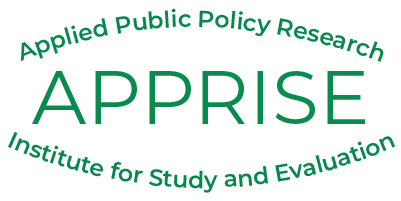Life as a Policy Analyst at APPRISE
To start out, I would like to tell you a little bit about how I came to work at APPRISE. I did my bachelors in electric engineering and then moved on to earn a Master of Science in Energy, Science, Technology, and Policy. Based on engineering, this graduate program was aligned with the new discoveries in science, keeping sustainability and the environment at the forefront, and informed by economics and public policy. Graduate school helped me to understand the interdisciplinary challenges of energy and the broad issues of energy generation, storage, transmission, and distribution as well as the issues related to energy policy, sustainability, and the environment. As an example, during my one-and-a-half-year master’s course, I worked on projects like “Comparative Cost Assessment of Solar Roofs and Solar PV Panels for Residential Buildings in California” and “Residential Energy Consumption Analysis of Households in the United States.”
Upon the completion of my graduate degree, I was looking for opportunities that allowed me to apply my skills, knowledge, and ambition to work on policies that increase energy affordability and reduce energy consumption. Enter APPRISE, an organization researching and evaluating the impact and performance of public programs that address energy usage and affordability. I was drawn to APPRISE because this work helps policymakers and other stakeholders to make well-informed decisions about energy policy design and implementation.
In my nearly four years at APPRISE, I have worked on several exciting projects. Some of these projects include the Philadelphia Gas Works Home Comfort Program Evaluation where I conducted an annual impact evaluation of the program. This project allowed me to analyze energy efficiency program data, energy usage data, and energy billing data. I obtained a greater understanding of how energy efficiency programs work, the data that are needed to assess those programs, and how to analyze energy usage data to estimate program impacts.
On the Community Services Block Grant (CSBG) Data Warehouse Project, I contributed to the creation of a data warehouse and accompanying tools. This system takes information that is reported by program grantees, validates those data, and develops metrics to assess the performance and impacts of these programs. Because the CSBG grants are used for many different purposes, it was challenging to develop a system that could systematically measure performance. This project taught me so much about data organization and analysis, determining how to measure program performance, and developing a system that provides clear information about the program impact.
I contributed to the Low-Income Home Energy Assistance Program (LIHEAP) Performance Management and Technical Support Project. LIHEAP provides support to help low-income households afford their home heating and home cooling costs. Because it is a block grant program, states around the country have flexibility for determining how the program is implemented. However, they are responsible for reporting consistent data to assess the performance of their programs. I was responsible for reviewing the data submitted by the state LIHEAP offices and providing technical support to ensure that their data were accurate and comprehensive.
While working on these projects I have held multiple roles, but my favorite role I think has been of a translator. This is the challenge of taking complex, and often messy, data and transforming it into a systematic set of metrics that provides a clear understanding of what the program is accomplishing. This information can then be used to make recommendations for program improvement.
Overall, I have grown and learned a lot during my time at APPRISE, and I owe that to the many opportunities I have had to push my limits and learn from the wonderful examples set by my coworkers.

Pragya Chauhan – Senior Policy Analyst

